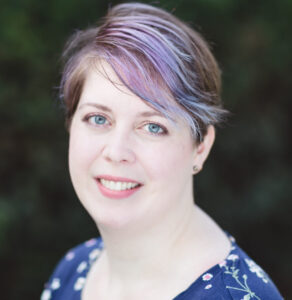
I Abandoned My Students Four Weeks into the Semester...
…and they had the best class ever.
I was honestly surprised I made it a whole month into the semester before getting sick, what with a preschooler at home. Much of the time, despite everything we should have learned from COVID, I strap on a mask and go teach anyway – but this time, my voice was gone and I felt like I’d been hit by a truck. I had to cancel classes.
At least, I thought I did. My introductory course wasn’t going to happen, but what about my majors- and minors-only seminar? It was a new course, filled with mature students I had invited to study theology more deeply, and the whole point was that it was discussion-based. They could do that without me, couldn’t they?
It was a wild morning – I decided to NOT cancel the seminar, but wanted to be sure I shaped the space and had some accountability for it, so I spent all the moments in my doctor’s waiting room typing out ideas on my phone. Before the class met, I had a structure ready. A colleague was going to go “start” the class for me by reading our weekly Alice Walker poem and handing out materials; students would have worksheets and assigned groups for a critical reading activity where they examined our text (a passage from Teresa of Avila) for aspects they thought were relatable and useful, or irrelevant and unhelpful. I also gave all twelve students a task for the day – everything from timekeeper to worksheet distributor, discussion leader to careful note-taker, and clock-watcher to pacing/energy manager. About half of them were told to send me materials as soon as class ended – pictures of their notes, or the sheets they filled out, even just emails to tell me how things went. After that, all I could do was sit at home in my robe with a hot cup of tea, and wait.
The emails started trickling in about an hour after class was due to end. “Everything went really well!” one adult student gushed. “We stayed the whole time!” (I had explicitly told them it was okay if they decided to finish up early). When I saw notes and the filled-out worksheets, I was a bit startled at how detailed everything was. Despite not hearing the discussion, I could get the flavor of it – long story short, my students don’t like it when women writers in spirituality are self-deprecating, and they were annoyed that Teresa of Avila kept undercutting her own authority by calling herself a “mere woman” (fair enough, blossoming feminist theologians). By the time I was back on campus and started running into students from that class, it became clear that they’d had an unexpectedly delightful time. “We were so nervous!” it always started out, “But once we got going, everybody was really engaged!” By the time we met again a week later, I was confident in opening class by saying, “So what do you want to talk about?” while I sat back and ate crackers from a missed lunch. There was some hemming and hawing, but after a minute or two, they launched into the topic of the week. I almost felt unnecessary.
Aside from tremendous pride in my students, the biggest lesson I took away from this unorthodox day of teaching was to get out of my own way. It doesn’t seem like a hard lesson, except that I’ve spent all my years at this institution pushing in exactly the opposite direction. The students who show up in my introductory courses are predominantly anxious – most have never studied religion before and are fearful of the difficulty of the course. One of the ways I help them feel more confident is by tightly controlling the space and making the boundaries and parameters clear – you will be in small groups for this many minutes, have one answer to share about that question, etc. When they know what I expect of them, they relax, and we have better interactions overall. It’s not quite the open forum that I loved in many of my favorite undergraduate courses – the ones that started with “well, what did you think of the readings?” and went from there – but it’s appropriate to the situation, and it works. I knew it might be a little tricky to switch out of that mode for my seminar class, but I had underestimated how intentional I would need to be to not take over the room. It turns out that not being in the room in the first place was the hard reset I needed. I was still present in the ways that I shaped the space and crafted the reflective forms of learning, but students didn’t need my voice to be so loud when they were still learning how to amplify their own.
I’m still early enough in my teaching career that it’s helpful to have reminders that I’m not growing into just one type of professor; I’m growing into being several types of teacher that I can pull out when I’m in the appropriate context. This semester, I’m going to aim to enjoy both the courses that I carefully control, and the one where I should be more of a fly on the wall. And in the future, I might strategically abandon my students a little more often, just to see what they can do without me.
Leave a Reply